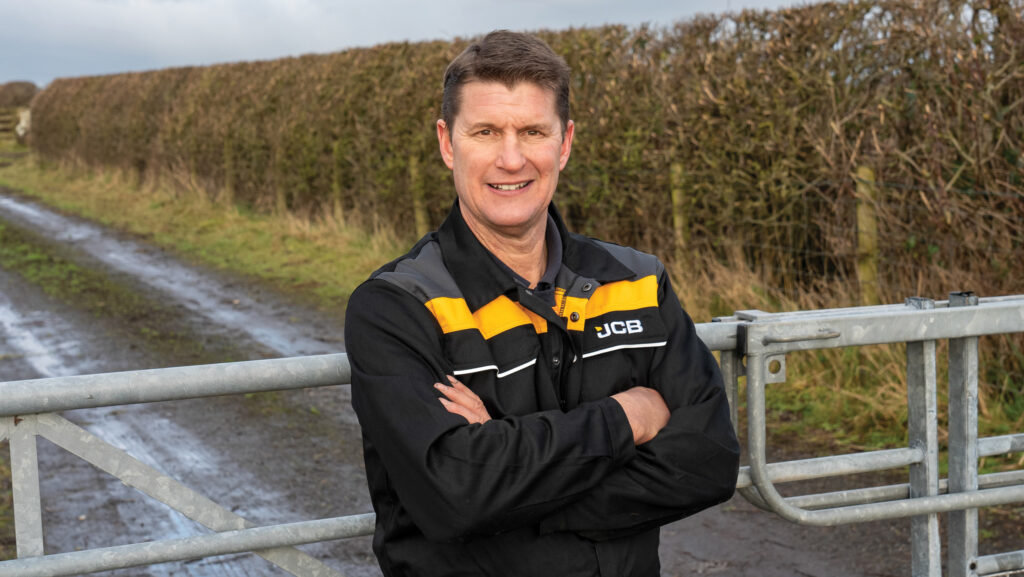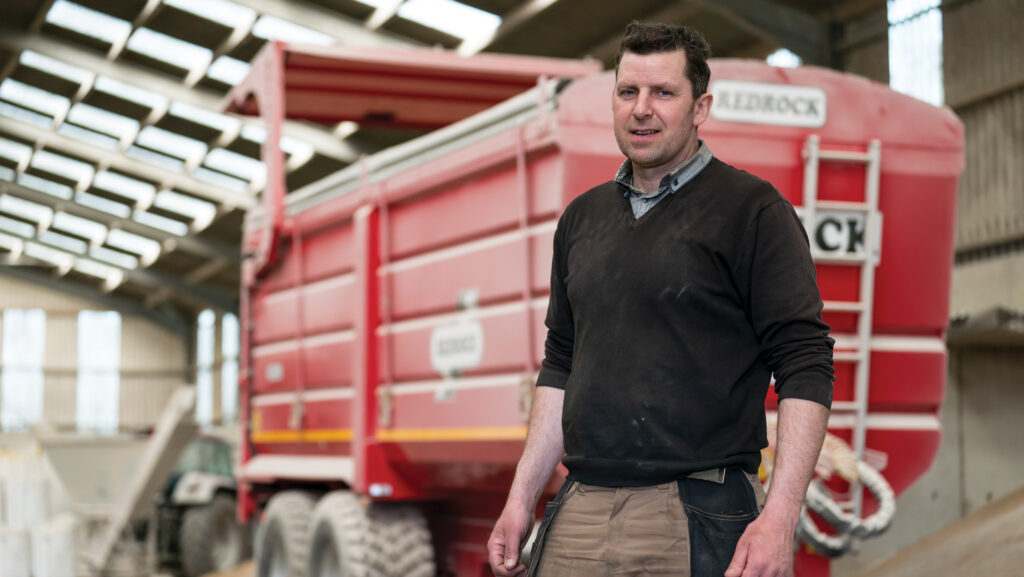Transition Farmers: Succession focus and investment on hold
Farmers Weekly’s Transition project is following a group of farmers on their journey to adapt and meet the challenges of farming.
Here, we look at the progress of two farms. Vaughan Hodgson is focused on succession in light of the inheritance tax changes and Fergal Watson considers his current financial position.
See also: Farmers share how bombshell SFI closure will affect them
Vaughan Hodgson

Vaughan Hodgson © Angus Findlay
Fact facts: JG & DE Hodgson, Kirkbride, Cumbria
- Farm size: 244ha. Cereals, grassland and 120,000 broilers
- Annual rainfall: 1,250mm
- Soil: Heavy red clay, silty sand, black peat
Succession planning is being accelerated on Vaughan Hodgson’s farm to de-risk it against the loss of inheritance tax (IHT) exemptions.
Handing over assets to the next generation was always on the horizon, but the government’s decision to charge farm businesses 20% IHT on assets beyond the first £1m from April 2026 has added greater urgency.
Vaughan, his mother, Dorothy, and wife Sandra are in the process of updating the partnership agreement.“
Transfer from one generation to the next has to happen, and once you get into your 60s you must have made significant inroads into that,” says Vaughan, who is 55.
“We are having discussions with our accountant to mitigate the IHT changes – it would be complete folly to be in a position where we have to give the government more tax because they just waste it.”
With arable and poultry operations, as well as construction and fabrication and caustic wheat enterprises, the business is complex.
Therefore, Vaughan sees the value in getting the best possible advice to increase the share owned by his sons, Karl and Ryan.
“I could die tomorrow, and if we got landed with an IHT bill for £2m it makes everything we have done in other areas of the business to make ourselves more efficient and profitable, pale into insignificance.”
Mitigation is needed against the financial impact of Basic Payment Scheme (BPS) cuts. The business lost £56,000 from its 2024 payment and will see its 2025 payment capped at £7,200.
Although he accuses the government of “doing everything it can to punish farmers”, he has a steely resolve to ensure the business remains strong.
“We knew the loss of the BPS was coming and, if we want to survive, we have to plough our own furrow.
“As a business we have to navigate away from government payments by expanding or reducing costs by investing in things that make us more efficient.”
Transition goal progress
Approximate percentage of progress towards completion:
- Support the next generation: 50%
- Cope with Basic Payment Scheme loss: 50%
- Reduce risks from weather changes: 50%
Fergal Watson
Farm facts: Watson Farms, Ards Peninsula, County Down
- Farm size: 285ha split across three units
- Annual rainfall: 810mm
- Soil type: Sandy to medium loam

Fergal Watson © Steffan Hill
At a time when many suckler beef farmers are scaling down herd size, Fergal Watson is bucking the trend by increasing cow numbers.
This spring, he will calve down 200 cows and heifers after retaining 30 Stabiliser-cross replacements.
His cashflow did take a knock in the 2024-25 financial year – he calculates he would have made about £50,000 by selling those heifers as breeding stock.
But Fergal says he “can’t think it can be a bad thing to build up numbers”.
It isn’t a long-term position, though, with the next generation eyeing up a future in farming.
Fergal’s 16-year-old daughter, Éabha-Marie, is ambitious to farm, and he worries about the safety and labour commitment of running a suckler herd.
The family are already considering alternatives, including a robot dairy enterprise.
“I think it offers a better lifestyle, the monthly milk cheque is better for cashflow and there would still be stock on the farm,” he says.
One reason for not making the switch now is high interest rates and the financial pressure already on the business, servicing a loan taken out some years ago to buy land.
“Another reason is that planning permission for livestock sheds, tanks and silo pits is prohibited in Northern Ireland, and Labour’s proposed changes to IHT will devastate our family farm.
“It is not the right time to go down the route of significant investment, we are pressing the pause button for now,” says Fergal.
Robot milking would help solve another succession goal around staff recruitment and retention. “It would offer a more attractive workplace with set hours and routine work,” he reckons.
Fergal’s full-time worker is 67, and his wife, Lucy, has taken a career break to work on the farm.
After 2023’s terrible weather hit the 350-acre arable enterprise, when commodity prices were low, 2024 offered a “wee pick-me-up”.
“Beef prices have held up, and the late-drilled spring crops yielded better than expected. Yields were down because of the cold, wet and late spring, but harvest weather was a dream,” says Fergal.
It is the third year the farm has operated a strip-tillage system and there is a notable improvement in soil health and structure.
Transition goal progress
Approximate percentage of progress towards completion:
- Recruiting and retaining farm staff 66%
- Restructuring suckler herd 66%
- Improving business resilience 66%
